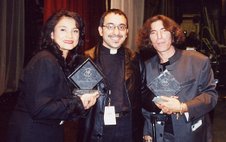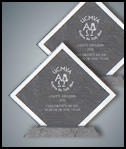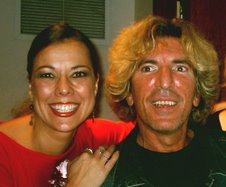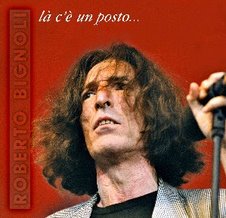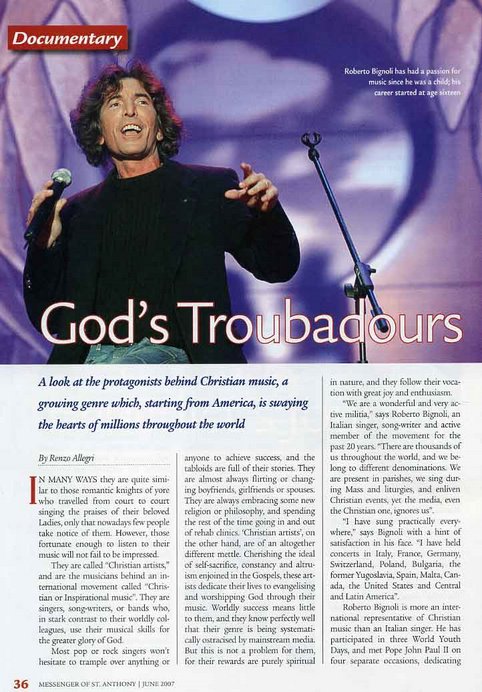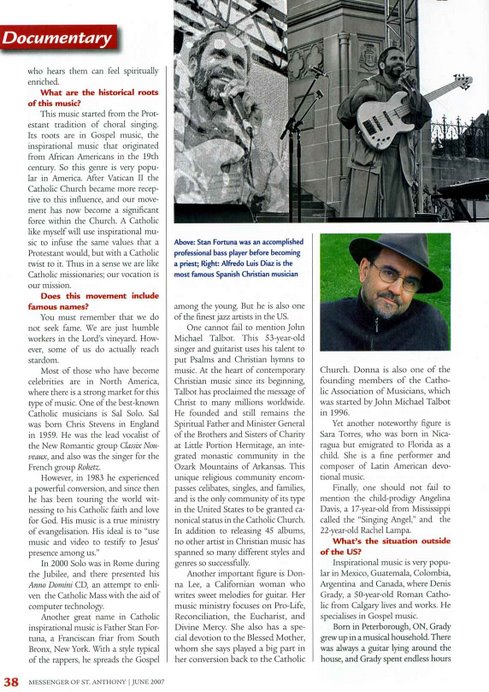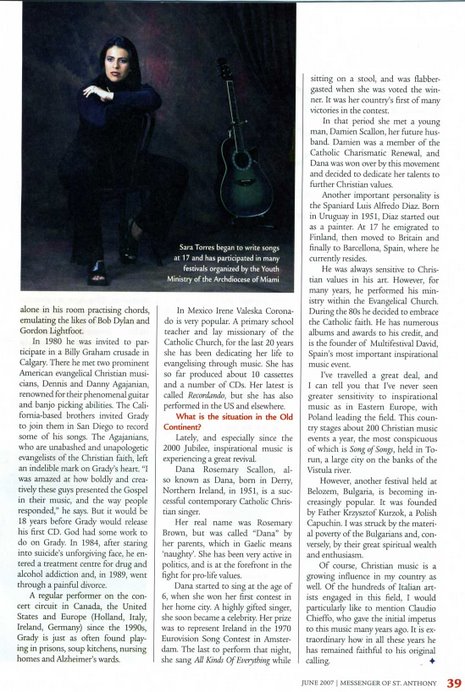

Thousands to gather in Warsaw on Sunday to celebrate the life of JPII
Gone but not forgotten. That’s exactly how most Catholics feel about John Paul II. It may have been six long months since the inspirational JPII passed on to a better place, but much of this time has been spent reflecting on a remarkable man who connected with so many – particularly young people.The second half of 2005 has presented many opportunities to remember JPII, not least the massive World Youth Day celebrations held in Cologne over the summer. You may also remember Xt3's very own Raindown dedicating the excellent 'Crucifying You' to the memory of John Paul II on CNN International in Rome back in April. Now, Europe prepares to give thanks once again. This Sunday, in Warsaw, Poland, the home country of John Paul the Great, thousands will attend a Papal Day concert to celebrate the life of the country’s best-loved son. Papal Day was set up by Poland’s Roman Catholic Church to fall on the Sunday preceding 16 October – the date of Cardinal Karol Wojtyla’s election to the papacy in 1978. It always completes a week of celebrations that include concerts, exhibitions and other commemorative events.This year’s concert – the highlight of the festivities – will be rather unique as it’s another opportunity to recognize the God-given gifts of JPII, celebrate his teachings and mark his legacy. He is already on the path to sainthood with the beatification process in full swing. The concert will be held at Castle Square in Warsaw and will be hosted by Grazyna Torbicka and Grzegorz Misztal. As an additional mark of recognition, the concert will also be dedicated to Pope Benedict XVI demonstrating Poland’s spiritual solidarity with the new pontiff. The artists scheduled to perform include: Ryszard Rynkowski, Jan Pietrzak, Mieczyslaw Szczesniak, Hanna Stach, Malgorzata Ostrowska, Magda Aniol, Beata Bednarz, Halina Mlynkova, Kuba Badach, Adam Krylik, Roberto Bignoli from Italy, Fr. Stan Fortuna from USA and gospel quartet A4 from France. The artists will present Karol Wojtyla’s favorite songs, hymns and tunes.

The christian music and the new evangelization
Roberto Bignoli is one of the most representative international contemporary Christian music artists. Could you briefly tell us how you became “ singer-songwriter to God”?
Before being a singer-songwriter to God I found out Faith. I realised that my life without God had no value. After many troublesome situations in 1984 . thanks to my coming closer to the Virgin Mary and to a pilgrimage to Medjugorie, I rediscovered life values and I started to come closer to the Church and to Sacraments. Since then I have started to wish to translate into music what I had experienced . I wanted to become an instrument for evangelisation, unpretentiously but offering my personal experience as a reference to talk about God’s greatness. All that has happened year after year gradually, but surely I really experienced that. I have held concerts all these years in Italy and abroad. In 2001 I receive 2 awards in Washington (USA) as best international artist of the year and best song ( Ho bisogno di te –I need You). Recently in Rome I received the Golden Grail as recognition of my commitment in new evangelisation.
Contemporary Christian music is a phenomenon emerging all around the world. In your opinion what do you think we need in Italy to make it a mass phenomenon?
I think all of us would believe in what they are doing. We need strength from many people who declare and fight in order to permit the Word of God to emerge. Christian music is not a different type of music from what we generally listen to. Lyrics are different and the artists are different. Considering the common rules of the mass media productions I doubt Christian music could become so popular. Anyway everything can change in a minute, and so I do not reject new horizons for Italian Christian Music in the future. A better expertise is needed, as well, both for the producers and for the artists. Most of all a great courage from the institutions in the church is missing. They do not still believe that the music with Christian inspiration is an important mean of evangelisation especially among young people.
Christian music is a good tool for evangelisation or better to let people know Christ. How and when, in your opinion, can this experience become a true dynamic of faith following the Resurrected? “Now go to every part of the world” is a sort of slogan of the Dioceses of Milan which I think to be the answer to your question. We need to reach every place to really bring God’s message. Music is the way to reach directly the young and everybody, isn’t it?
Don’t you think that singing (as it often happens) values or situations which do not strictly refer to a Lord’s praise may echo the world matters? Of course, singing of values is always positive, but it is not if the singer does not apply them in his life. It is the example and testimony that give credibility: I do not feel to be better than others or perfect. I know to be limited and to contradict myself, but, maybe, my winning point is that I really believe in the values I sing and talk about.
There is a way of thinking ( which I honestly share) , very strict, which states Christian music must be essentially a praise and adoration and suggests not to sing anything else because the Lord must always stay in the centre and only to Him is the Glory. What do you think?
As it is for everything, I think there must not be integralism. But, if we really talk about Christian music, themes must be coherent to Jesus’ Spirit and to the Gospel. If we go far from the centre then we become protagonists. I hope not to fall in this trap.
There is also a lively debate according to which the correct or distorted use of musical instruments or genres answer to the instinct side and not the spiritual side of a man as Christian religion would ask. The reference is to st. Paul’s letters, and particularly to Galatians,5.
In Ephesians 5,19 st. Paul specifies that Christian have to speak to one another with psalms, hymns and spiritual songs. “ Spiritual “ is the nature of these songs, and being the Word of God true, real, eternal, and unchangeable, producer of what it says, we should go back to the Gospel according st. John: God is Spirit, and the true worshippers will worship the Father in spirit and truth (John 4,5) and since the same Word of God states that man is made to glorify Him, it seems there is only one possibility for the Christian to sing. What do you think?
Well, we must pay attention, of course. We must not mix up Christian music and liturgical music: they are very different. Of course we can’t confuse the Christian message or better the Gospel with other spiritual influences, because we could lose the meaning and the spirit.
It seems there are two main categories: one of praise and adoration ( diversified according to the different confessions and names) and the other which can give a shade and colour to the life of a Christian, and that follows in a way the more questionable world music genres. What do you think? As I ‘ve told you, I think that the mistake is on mixing up liturgical and Christian music. They are not the same thing and surely they are both important means, but they have a different destination. Beside, the music of praise and adoration is often used in charismatic prayers while other genres, such as rock, Christian rap and so on, are generally played and proposed in theatres, squares, pubs, discos, I would say those places where the Word is not announced but where it is necessary to bring. Lately the music of praise and adoration was brought by charismatic groups especially in USA and England out of their meetings and prayer groups.
Most of all with the singer Marco Barrientos ( Aliento producciones) a great ministry of songs and music for an internal healing has emerged. It is anyway something that can bring a desire of a closer encounter with God and also it can represent one of the first successful attempts to regain the place taken for many years by new Age. What’s your opinion?
On this topic I am always very prudent. I don’t reject the possibility of healing through music because everything is possible for God. Only from the fruits we will recognise the tree. I think that the people who think to have this gift, to be truly of God, in my opinion must be people of God. They must be filled completely by God. Their lives should be the most coherent possible with Jesus’ life . Their links to the Sacraments should be their strength. And when all that is present lets’ thank the Lord that through this ministry is near to those who suffer to heal them.
I say that: if contemporary Christian music is not accompanied by a spiritual and mass awakening it will remain hidden, especially in Italy where there is a certain spirituality which is not spirituality. What is your opinion? It is true. Particularly in Italy there is a religious tradition, but actually every one leads his ordinary life. What do I mean? When you see the churches full of people you may think there are a lot of Christians, but when they are out they start again their common life. It is not meant as a critic but it is a starting point. We don not know how to cultivate faith inside us with a great grace the Lord has given us. This clearly leaves inside us a sense of torpor that does not permit to collaborate to Christian’s unity and so to became a crowd that believe in a common ideal.
Music has always been a favourable vehicle to join and share, either for young people or in general for people. Why , especially in Italy, is there a marked division in Christian music? Can Ecumenism and unity of Christians start mostly from music? Unfortunately music alone dos not operate miracles. There are still a lot of people, also the most representative members of the Church , dioceses, parishes, who do not understand the importance of this mean of evangelisation. They refuse or interfere. It is clear if there is not the Church help to reach many young people it is also evident how the message finds obstacles not easily to be overcome. So, we can see Christian music grow in a strong and successful way inside the evangelic church where the ministers are the first to sustain and develop Christian message through music. They understood that young people answer in a strong way to this kind of language, if it is supported by expertise and sophisticated means to develop these productions and they have a full and total support form the papers and evangelic mass media. It is stronger if we go outside Italy.
What do we need to create a real market with shops, clothes and other objects connected with Christian music, as it happen in north or Latin America and other countries in the world?
As it was already said in many points of this interview to be successful we need expertise, firm belief and the have the courage to announce the good news with force and credibility, having always in mind the Gospel and a strong relationship with the Church.
How do you see the information scenery in this field? Lately , thanks to many web sites such as Informusic, papaboys, Il mio Dio canta giovane, Korazym, Giovani.org, and many others, Christian music has been present and will be known. It is not always easy to reach Catholic papers while a good answer is given from the so called ‘secular’ papers. The result is undoubtfully positive if you think that only 5 years ago if you were looking for Christian music in Italy you could find very few things. Now there are many many pages of reviews, articles and so on about Christian music.
How could the great mass media , papers and specialised papers, speak about Christian music? It could be done simply dealing it as it is: music, with no stress on the word Christian or be worried of it, even because when mass media deal with transgress music, satanic or hard music, or negative genres and not common for the general audience, the do not put the question on writing or speaking. In some cases this kind of music is exalted, so it was not so bad if also Christian music would be proposed with the same attention.
How is it possible not to fall into temptation of becoming a star? Many people say if in the centre there is only God, inspired and guided only by the Holy Spirit, and not by own ideas, opinions, projects, realities and so on, you mostly avoid to fall into idolatry. What do you think? It depends on the way you really believe in God, and not in yourself. Now you can win the temptation.
By Giancarlo Padula
(jourmalist and writer)

Interview to the Christian singer and song writer Roberto Bignoli
In the last weeks the news reported episodes of violence with young protagonists fond of “satanic rock”. In the world of music , luckily, there is not only that.
In fact, the testimonies of artists that propose messages in favour of life are becoming more frequent and they become positive models for the young.
A significant case is that of Roberto Bignoli, a disable singer and song writer. Since his childhood Roberto has faced the experience of poverty and illness, and later, of drug and prison. He is the son of an unmarried woman, he had poliomyelitis and has lived for many years in various institutes.
Then, the love for Jesus has changed radically his life. Now Roberto Bignoli is one of the most known and evaluated Christian singers and songwriters. In December 2001 he received in Washington the Unity Awards prize, as the best international Christian artist. In December 2003 in Rome he received the Golden Graal, oscar of Christian music for his commitment in evangelisation and in social life.
Roberto is occupied by his music and the commitment for his family. He is married with Paola, and is the father of two beautiful girls: Mariastella, aged 9, and Mariachiara, aged 5.
Beside love, Roberto and Paola share another beautiful experience. They have created an Internet site to let young of all the world know about Christian music (.zenit.org)with news, artists biographies, photos, information about concerts, specialised books and records reviews.
In this interview , Roberto Bignoli, tells us about his relation with music and God.
What do you think about the recent episodes of young satanism connected to satanic rock?
Roberto Bignoli: This sad reality is the consequence of a world made of solitude and egoism, where good is confused with evil at any cost. Beside, there is a great commercial machine that lead young to go towards rebellion.
Then, the exclusion of the value of the family, of the value of own’s and other’s life, to indulge on all kinds of liberties… it is really a sad condition which does not lead to liberty but to full slavery.
. What value can music have in the life of a young person?
Roberto Bignoli: Music has a great value in the life of a young person. Considering his mood a young person listens to music which he finds more convenient to his experience and his knowledge. The source of inspiration and reflection is to recognise oneself in it, but it is also a mate and an expression of one’s feelings.
And in your life, what values has got your music?
Roberto Bignoli: I express myself in singing. Every one of us must answer the Lord’s call offering one’s capabilities, in order to be useful for others. We must meet young , trying to understand their problems and helping them in finding the sense of life. Can music become a prayer?
Roberto Bignoli: Every time we speak about the Lord and the marvellous things he has created, and transmit the joy of trying to walk beside Him, He is with us. Therefore, a song can surely become a prayer. But, obviously, it does not substitute personal prayer and the participation to the Sacraments. It is a further help to become close to the Word of the Lord, a way to arrive to the Gospel.
One of your most famous songs, “Ballata per Maria”, is dedicated to the Lady. Which relation have you got with Jesus’ Mother?
Roberto Bignoli: my relation with Maria is very beautiful and alive. It was her that has given me the grace of the conversion of the heart, who has given me the light when I saw the darkness, hope when I felt myself lost and joy to be her son when in my life, often and for many reasons, the maternal warm was missing.
In Her I have found a mother, a guide and the peace of heart. Here it is why I often speak to Her in my songs. It is the most precious gift of my life.
What future do you hope for your daughters?
Roberto Bignoli: I hope surely that the values I speak about and live with my wife Paola, can become also their values, in simplicity and liberty. I wish they learn to walk in the way to the Lord and to understand fully the spiritual richness found.
I hope they can share together the joy of being children of God and make their life a mission of hope, peace and love according to His will. Then, having said all that, may they do what they feel in their hearts, honestly and willingly.
BY CARLO CLIMATI
Roberto Bignoli - Vicka Medjugorje
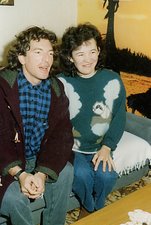
Recording Artist Roberto Bignoli - By Michael K. Jones
Before the interview lets get acquainted with a little background of Roberto Bignoli. Roberto is a popular Italian Christian singer with seven albums to his credit. He sings his testimonial through music and words. Before his conversion, during a period of personal crisis, Roberto fell into a deep depression, and it was in this dark period that he met some young people who told him of a place called Medjugorje. After visiting and praying in Medjugorje, Roberto found his life changing and discovered a new calling to Christian music. Today Roberto has performed all around the world. One of the pieces making up his collection of music is, "Concerto a Sarajevo", dedicated to the children who were victim of the wars. Q. Why don't you begin by telling us something about yourself; such as who you are, how old you are, your childhood, and your interests and hobbies. A. I sing and write Christian music. My family was very poor; when I was one I got polio and because my parents weren't able to afford the medical expenses, or to take care of me, I was put in a home; and I went from one home to another one till I was 15. I suffered a lot because my only desire was to be surrounded by the love of a family, to be with friends of my own age, and to be amongst the people. Q. Roberto, how did you spend your youth? A. My youth was very troubled and unhappy. During my years spent in the homes I acquired a distorted vision of the world. I joined the "beat generation" in search of freedom, hence I totally refused society and all its institutions. I lost nearly all contact with my family, even though deep down in my heart I wanted to go back home. I spent a brief period in prison for use of drugs. During a period of personal crisisI rediscovered my love for music. I began doing concerts with small and big musicians, and writing songs, mostly love songs. But one day I fell into a deep depression, and it was in this dark peaceless period that I met some young people who told me: "Jesus loves you." They spoke to me of a place called Medjugorje where apparitions were supposedly happening. As they were telling me I was aware of an urgent need growing within me to go there. It was August 1984 when I went with three friends. I immediately felt at home and I felt a great need to ask for the conversion of my heart so that my life could become simple and humble like the surroundings of Medjugorje. Back home I felt that something was changing in me and I began to pray the Rosary every day and to go to daily Mass. It was through doing this that I began to understand the importance of the gift of singing and I wrote my first song entitled, "Canzone per Maria" (Song for Mary). In the beginning I was frightened by what my friends would think but in the end I felt the urge to speak of the faith and Mary's love to whomever I met. Q. How was your relationship with your family and how is it now? A. In the beginning it was fairly difficult because I was convinced to have been abandoned, but when I discovered the faith I learnt to love and respect them for having given me life. Q. Tell us about your sickness. How does it affect you? A. In itself it really isn't a problem, but it became one because of the looks and the comments of the people who met me. However, with Mary's help my handicap became God's gift, because through the suffering caused by it I discovered the value of the cross. But then, after all, everyone has a handicap, whether it be visible or invisible; and each person needs to learn to accept himself as he is. Q. What do you think is your vocation? A. I think that I am called to be a husband, a father and a Christian songwriter and singer. Q. Why did you choose to sing? What does it mean for you, and what do you want to transmit to others with it? A. I sing because I am a musician. Singing is how I express myself. My songs are born as a means to help others find God, with their words of hope, faith and love for those who suffer and for those seeking God. Singing for me has become a mission to say that God exists. Q. Your voice is very popular, thanks in particular to your "Ballata per Maria." What it is that moves your heart when you sing for Mary? A. "Ballata per Maria" (Ballad for Mary) is a token of love and acknowledgment for what the Blessed Virgin has done in my life. She is the universal mother who not only captured my heart, but captures the hearts of many youth. She is an infinite fount of grace and an example of humbleness and love, for which every person should bow his head in gratitude. "Ballata per Maria" became an international compilation which allowed other Christian song writers/singers to express their love for Mary by assigning all the proceeds from its sale to the children of Bosnia. Q. Roberto, you often do concerts before crowds of young people. Have you ever thought of speaking to them from the stage to invite them to follow Jesus? A. I think that the things of God cannot be imposed upon the youth, but can be transmitted by being an example and a witness. When I speak to people or to my public I speak of Jesus as a Father, a friend and a brother who accompanies me in my journey. This is a seed that I sow and which Jesus wants to germinate in the hearts of those who listen. Q. To conclude, what message would you like to offer to the young people who will read this testimony; perhaps young people who have found the way but are having trouble at leaving everything behind to follow Christ? A. To the young people I wish to say that the way which leads to Christ is the safest and the most gratifying way, even though at times it may appear to be difficult because of the renunciations and sacrifices it demands. The reason is that it goes upstream with respect to what the world offers. But don't lose courage! Instead, put the cross on your shoulders and follow it, as He did before us. On His part, God gives us all the help we need, through the sacraments, prayer, and the Gospel. These act like road signs to show us the way which leads straight to the heart of Jesus. I believe this is the most beautiful call; and I wish it upon everyone, including myself

The Homage of Bignoli to John Paul II is Flying over the World
A few months ago the idea to be created a song as homage to John Paul II wasannounced and finally we can listen to the song. Its title is "Nontemere" (Don't be Afraid), and it is the new Cd single of Roberto Bignoli,who is a performer of Christian music from Milan and one of themost refined poets of our time. The CD was realized in collaboration withthe Ass.comunicanto di Lugo di Romagna. The song was not createdwith the purpose of commercial success and will be played by many radiostations across the whole world as a personal homage of Roberto to John PaulII, the pope who loved the music and thought the art as a way to get closerto God.How you can forget the joy of this unforgettable Pontifical in frontof the thousand choruses dedicated to him the young people during the WorldYouth Days?John Paul II often accompanied them by raising his arms andmoving them in the rhythm of the music. In reply the youngsters startedsinging more loudly. This is the reason why Roberto Bignoli wanted todedicate a song to John Paul II -the Pope, who was a friend of the youngpeople and a friend of everybody and whose message was to love eachother.Nico Fortarezza (secular artist) is the arranger, producer and authorof the music of"Don't be Afraid". He is famous in the music show business for hiscollaboration with Enrico Ruggeri. The CD contains also an interestingvideoclip, in which the authors directly address the young people,emphasizing on the positive message of the song inspired by the words of thePope. It was, in fact, just John Paul II who encouraged the new generationsnot to be afraid and to open the doors to Christ. Roberto Bignoli followsthe same way with his song "Don't be Afraid". He is offering to young peoplefrom all over the world a message of hope andinfinite love, in order to remember to look at the sky and to pray throughthe lyrics of the song.
Photo Backstage Non Temere
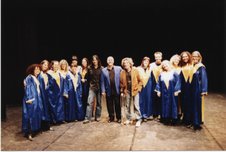
Non Temere Dont’Be Afraid
Don’t be afraid
under this blue sky
if I’m here with you today
time goes by and doesn’t stop
your eyes are over me
tell me where you are going
my heart travels away with you.
Don’t be afraid to take risks
but play your life with wonder
No, don’t be afraid, no, do believe in Him
don’t be afraid to face the world
and its challenges that hurt you.
No, don’t be afraid, no, do believe in Him
and you’ll live a future in love.
under this sun of autumn
the time has arrived
open your door to Christ
because He knows who you are
Freedom He will bring
to every man who looks for it.
Don’t be afraid to take risks
but play your life with wonder
No, don’t be afraid, no, do believe in Him
don’t be afraid to face the world
and its challenges that hurt you.
No, don’t be afraid, no, do believe in Him
and you’ll live a future in love.

Roberto Bignoli Live Concert Poland


martedì 12 dicembre 2006
Roberto Bignoli Christian Artist
biography Roberto BignoliHe has a passion for music since he was a child. His artistic career has a start when he was sixteen. He takes part in several music entertainments and various pop music festivals; he has been the backer of some "big". He has performed in the streets of Italian and foreign cities getting consent and audience.Here are some of his productions in the '80s: "Se la luna" (If the moon): 30,000 copies sold; "Canzone per Laura" (Song for Laura) presented in all private TV stations, particularly in the popular broadcasts "Pop Corn" of Canale 5, "Lorelai" and Ninnanà ninnanò". Over the years '83-'84 he settled down in Paris for some very successful months.In 1984, the crucial year for his conversion, he decided for a radical change of trend. Since then he has been entirely devoting his artistic gift to affirm his change and profess his faith in Christ.In '86 here is his first record, "Regina della Pace" (Queen of Peace), published in two issues as a result of his deep friendship with the mystic Maria Siccardi. It sells 150.000 copies in the catholic markets.In 1987 he releases the first album of his new production called "Canzone per Maria" (Song for Mary) entirely dedicated to the experience of his new devotion for Mary. "Ho visto la Croce" (I saw the cross) in 1988 bears witness to the discovery of the centrality of Christ and the Cross as keynote of his personal history.In '90 he records a testimonial-concert, "Una storia da raccontare" (A Story to Tell) as a proof of his new feeling. "Porta Cristo" (Bring Christ) of 1991 comes out of the ardour and the freshness of his profession and includes some of Roberto's most significant songs: "Ballata per Maria" (Ballad for Mary), that has later become the live motive of Radio Maria station, "Porta Cristo" (Bring Christ), a funky song that communicates the impulse of announcing Christ where social relegation and human decay seem to have no hope left, "Diglielo tu" (You Tell him That) a rock piece inspired by a real event.In '91 he publishes a book, "In concerto sotto la Croce" (In Concert Under the Cross) as testimonial of a live concert given in Rom in the presence of a crowd of young people. His new biography is now in progress.In 1996 he publishes with Edizioni Paoline "Tempo di Pace" (Time of Peace) a work full of musicality and strong topics, with the famous "Concerto a Sarajevo" (Concert in Sarajevo) written during the war in Bosnia and broadcast everywhere, particularly by underground stations of the former Balkan republic, "Un uomo" (A Man) and the new edition of "Oltre la collina" (Beyond the Hill) written in '83 before his conversion, a sort of precognition of what was going to happen to him. A range of songs full of commitment originated by real life and far from easy tall talk.In 1998 the collection "Roberto Bignoli Vol.1" is issued, followed in 1999 by the single "Blues cielo blu" (Blues the Sky is Blue) that includes also the fantastic and driving piece of blues with the same title.2001 is the year of the new multimedia CD "Ho bisogno di te" (I need you) that is the title of the new "ethnic" song dedicated to God as a Father along with "Parole e amore" (Words and love) that is the result of the astonishment at the huge evidence of charity of our century.In December 2001 in Washington he is given the prestigious international prize UCMVA Unity Award (as best artist and for the best song of the year) and in 2003 the first acknowledgement of Golden Graal, the Italian Award dedicated to evangelization.He's also taken part, as Special Guest, in a large number of international festivals of Christian Music and he's been one of the voices of about twenty compilations of Christian artists, eight of which international.He's given concerts all over Italy as well as in France, Germany, Switzerland, Poland, Bulgaria, former Yugoslavia, Spain, Malta, Canada, U.S.A., Central and Latin America, Argentina. Two tours in Australia and in Brazil are now in preparation.Many media such as radio and TV stations as well as newspapers, both catholic and laic, have talked about him.Roberto has been the promoter of international festivals of Christian music and art director of international compilations. He's taken part in GMG of Paris in 1996, in the one of Rom (Tor Vergata, August 2000), of Toronto along with Don Mimmo Iervolino, and again of Colony in 2002 and in 2005.On October 16, 2005 he's been officially invited by Polish TVP (Polish national Television) to take part in the Gran Galà and Concert dedicated to Giovanni Paolo II, given in the square of the Warsaw Castle with a presence of 30,000 people. His latest record in 2005 is the brand new single for radio "Là c'è un posto" (There is a place) with four new pieces. One is the exciting singer-songwriter style "Dimmi, mio Signore" (Tell me my Lord), a dramatic question to God arisen by the astonishment for the present world-wide situation of disorders and epochal disasters. Another song is the powerful rock ballad "Là c'è un posto" (There is a place), a support and an invitation to find one's way for those who are involved in deceptive and humbling choices. The former song came out in Australia within an international compilation whose income is destined to help people victim of the recent tsunami, and the latter, in Poland, is a collection of Christian Polish artists, enclosed with in the prestigious musical magazine "Ruah".The song "Là c'è un posto" (There is a place) on November 12, 2005 is awarded in Minnesota U.S.A. the prestigious international prize UCMVA Unity Award for the best song of the year.
Iscriviti a:
Post (Atom)

